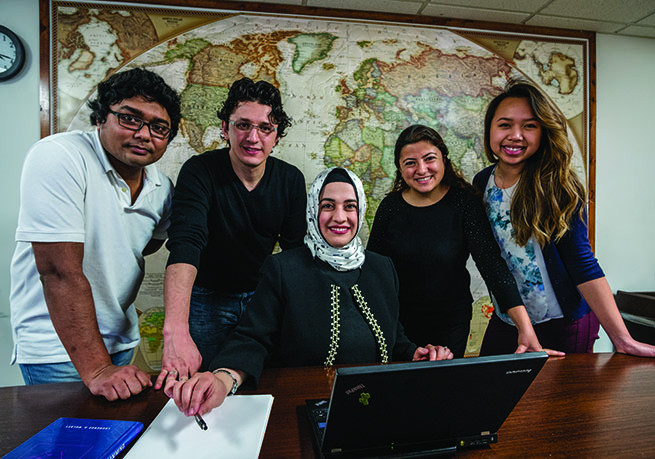
Optimization and Analytics Laboratory, appreciates the innovative
climate on campus. “I believe that this transformative change is a
giant step toward being a top-notch university,” she says.
In 2011, Esra Buyuktahtakin, assistant professor of industrial and manufacturing engineering, founded the Systems Optimization and Analytics Laboratory, which, she says, “is designed to conduct theoretical and applied research on mathematical optimization.”
Thanks to a $500,000 Career Award from the National Science Foundation in February, she and the lab have steady research funding for the next five years.
A prestigious award for new faculty members, the NSF grant supports promising early-career activities of teacher-scholars. “I am happy and excited about receiving this recognition,” she says.
The grant will also allow her to travel to conferences and present her research. “This NSF funded project focuses on designing mathematical models to inform public policy for controlling the spread of invasive species,” she explains. “Examples include highly flammable buffelgrass in Arizona, aggressively growing sericea lespedeza in Kansas, and the Asian Tiger mosquito, which causes diseases that include West Nile virus and Zika virus. Invasive species cause harm to human health, the environment and the economy. Therefore, their management is of critical importance.”
Buyuktahtakin, who is originally from Turkey, enjoys pursuing her research interests and teaching at WSU. “My goal as an instructor,” she says, “is to help my students improve their analytical skills and to motivate them to be life-long learners.”





